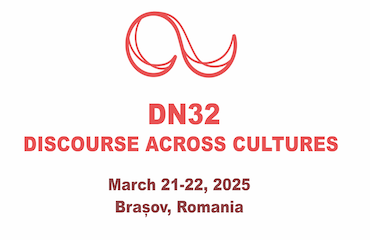Discourse across Cultures: International Conference

21 and 22 March 2025, “Sergiu T. Chiriacescu” International Conference Centre, Transilvania University
The Faculty of Letters, Transilvania University of Brașov and DiscourseNet International Association invite you to participate in the international conference Discourse across Cultures.
The key concepts of this event are discourse, defined as ‘language in use’ (Brown & Yule 1983), which has become ‘common currency in a variety of disciplines: critical theory, sociology, linguistics, philosophy, social psychology and many other fields’ (Mills 2004: 1), and the multi-layered construct of culture, defined as ‘the deposit of knowledge, experience, beliefs, values, attitudes, meanings, social hierarchies, religions, notions of time, roles, spatial relationships, concepts of the universe, and material objects and possessions acquired by a group of people in the course of generations through individual and group striving’ (Samovar and Porter, 2003: 8).
In a context where globalization encourages communication among people from various cultures, ‘culturally divergent discourses possess the moral-rational force to reflect upon themselves and others (…) and to produce progressive change’ (Shi-xu, 2005: 44).
Therefore, the aim of the event is to bring together the two strands in this increasingly interconnected world, providing the opportunity to use language comparisons between/among cultures in order to get a deeper insight into the language phenomena around us (Moder 2004: 3). The focus is on cross-cultural discourse patterns, as well as on specific communicative practices within cultures.
The conference is envisaged as a platform for the discourse scholars from all disciplines, as well as other scholars in humanities and social sciences to engage in a meaningful dialogue that could lead to new interdisciplinary collaborations or practical applications. The participants can benefit from networking opportunities, publication potential or contributions to emerging trends.
The organisers encourage the participation in person, but also offer the opportunity of virtual or hybrid presentations. The time-limit for submitting the abstracts is 30 January 2025.
More details are available HERE



